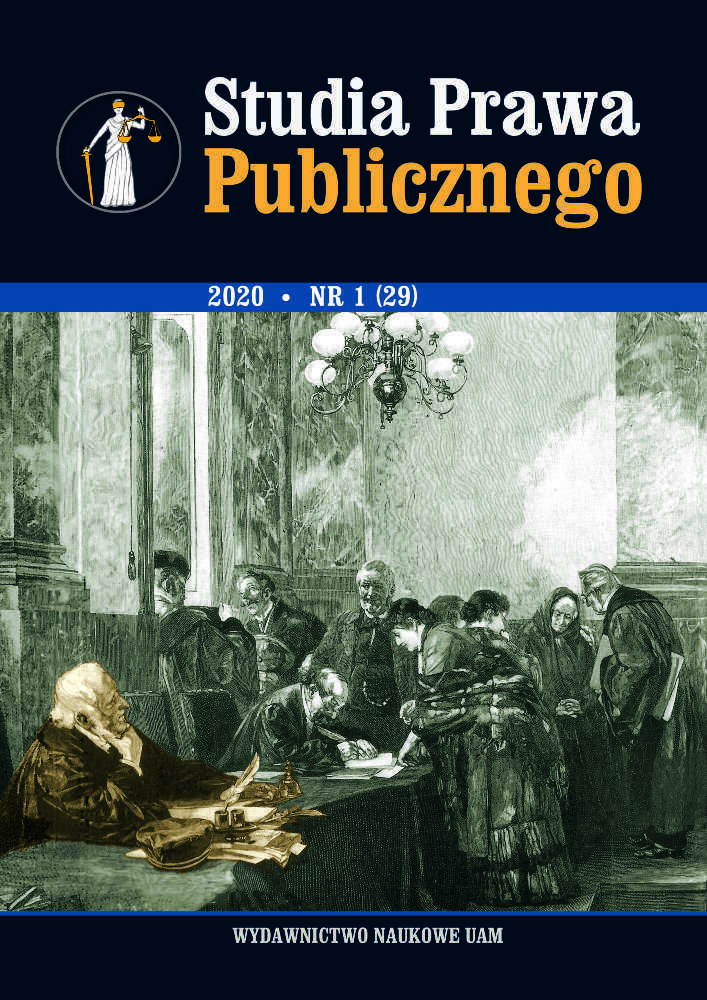Abstract
An epidemic caused by the coronavirus SARS-CoV-2 has been existed in Europe and worldwide for several weeks now. On 11 March 2020, the WHO declared it a global pandemic. At the time of writing, Europe, in particular Italy, is the largest outbreak of coronavirus. Italy is attempting to tackle the virus with increasingly drastic legal measures. On 31 January 2020, its Council of Ministers declared a state of emergency related to the sanitary risk of coronavirus infection. Italy has started the fight against the virus using two legal instruments: the first is the Council of Ministers’ declaration of a six-month state of emergency on 31 January 2020, and the second is a decree-law (decreto legge) issued by the Prime Minister temporarily restricting the freedom of movement throughout the state. In exceptional cases, the Italian Government has the right to issue normative legal acts. Recent legislative acts issued in Italy have undoubtedly limited the fundamental rights granted by the Constitution of 1947. These limited rights include the right of movement, but also freedom of assembly, the right to work, freedom of economic activity and freedom of conscience and religion. As a result of the legal solutions introduced, fundamental human rights are subject to justifiable restrictions in order to protect the constitutionally guaranteed right of the community to health care. In situations of epidemiological threats, protecting the lives and health of citizens is essential. Any restrictions on rights and freedoms are intended to protect these goods. However extensive these restrictions may be, in a democratic state this must be introduced under strict control and for a specified period of time linked to the duration of an epidemic.
References
Azzariti G., Le misure sono costituzionali a patto che siano a tempo determinato, „La Repubblica” 8 III 2020.
Doktór-Bindas K., Wpływ prawa Unii Europejskiej na system źródeł prawa Republiki Włoskiej, Warszawa 2013.
Mabellini S., Tamburrini V., La migrazione sanitaria nell’esperienza degli Stati composti, w: L’assistenza sanitaria transflontariera Verso un welfare state europeo?, pod red. D. Morana, Napoli 2018.
Perlingieri P., Commento alla Costituzione Italiania, Napoli 1997.
Urbaniak M., Aspekty publicznoprawne organizacji i finansowania ochrony zdrowia w Republice Włoskiej, Toruń 2014.
Urbaniak M., Prawo do ochrony zdrowia w Konstytucji Republiki Włoskiej, „Prawo i Medycyna” 2009, nr 1.
Venanzoni A., L’innominabile attuale. L’emergenza Covid-19 tra diritti fondamentali e stato di eccezione, „Quaderni costituzionali” 2020, n.1.
Witkowski Z., Ustrój konstytucyjny współczesnych Włoch w aktualnej fazie jego przemian 1989–2004, Toruń 2004.
Zakrzewska J., Włochy, w: Konstytucje Finlandii, Włoch, Niemieckiej Republiki Federalnej, Francji, Wrocław–Warszawa–Kraków–Gdańsk 1971.
Zakrzewska J., Włochy. Zarys ustroju, Wrocław–Warszawa–Kraków–Gdańsk 1974.
License
Copyright (c) 2020 Monika Urbaniak

This work is licensed under a Creative Commons Attribution-NonCommercial-NoDerivatives 4.0 International License.

